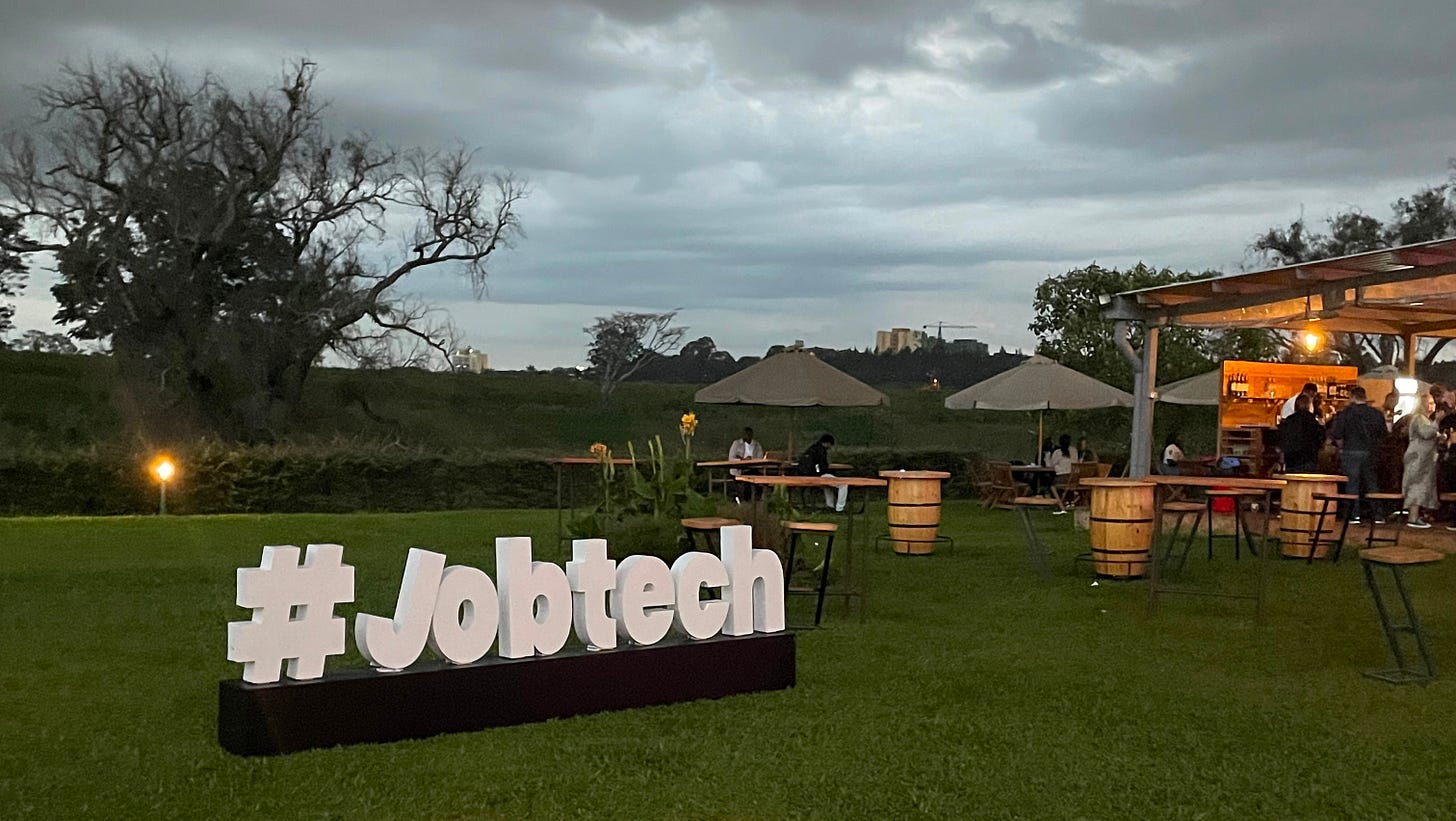A few weeks ago, I was at the incredibly well-organised JobTech Africa Summit in Nairobi, Kenya. This short essay is me untangling my still messy thinking about jobs and the job of creating jobs.
But before we get into it, a few words about the event itself. “It’s also easy to lose yourself bouncing from one event to another,” I wrote in 2023. The JobTech meeting was the opposite. One of my highlights was the audience selection. Chris, Michelle, and the entire team did an excellent job of curating the right mix of profiles, which is important because it's a key ingredient for interesting/relevant side conversations.
We’re trying to do the same at the Africa/Week 2025, the Norrsken investor-founder event, this November, and I’m curating the list of participants. Apply here: norrsken.org/africaweek (add MMdA after your name so I know where you came from).
Now, back to jobs.
So, where does work come from?
I am still forming my answer to the question of where work comes from. But from a philosophical perspective, Marx, Aristotle, Heidegger, religion, phenomenology (the study of conscious experience) and physics have ideas that, in my opinion, are all complementary to the entire idea of work philosophy.
As a primer, here’s a quick and extremely simplified summary of some of the more popular perspectives about work.
Most of us don’t think about work in ethereal terms like this. When you think about finding a job, changing your job, or working your current job, the primary motivation(s) is to earn income and find prestige and/or social power.
Still, it is important to think about work from more than just an evolutionary/survival instinct basis, both personally and systematically. Why? Because everything—how you work, what you do, and importantly, how we create and organise work in the face of technology—is downstream of what work means for us.
Even our everyday view of work is a perspective that aligns closely with the evolutionary philosophy of work. Where work is simply a series of adaptive behaviours to secure resources, create community and find status.
Every epoch of history has influenced and shaped work and the creation and organisation of work. The current epoch—the Information Age—is no different. Including the 2020-to-date Remote vs Back-to-Office fad. If anything, work is simply too important not to think deeply about.
When work is simply an input factor for productivity, we will create and organise work differently. When work is treated as simply a diffuser of population-scale unrest, we will approach work creation and organisation differently. Where work is either a dyke to hold back mass migration or to pull in migration, the mechanics of organising and creating work also changes. And both the organisation and creation of work are influenced by other aspects of society.
Ageing populations shift the workforce balance in different ways, for example. But also, youthful populations place more demand on work-creating resources. And in a very connected world, the shifts and responses have far-reaching effects.
When we think about digital work, digitalising work, or digitally organising work, what work philosophy is driving the solutions and concepts that pull resources? Is there even one shared work philosophy? And how do we determine the optimal balance of work philosophies that undergird how we are increasingly talking about, organising and creating or destroying work?
Jobs are a series of work processes and accountability that yield an outcome, so the practical questions around job creation, of course, remain. But the ontological mix of the source of work is a challenge to search for mental framing to guide how we think about what we are doing. Especially if your work KPIs involve creating work.
When you worry about creating jobs for young people in Africa, where does that work come from?
I welcome your thoughts.





